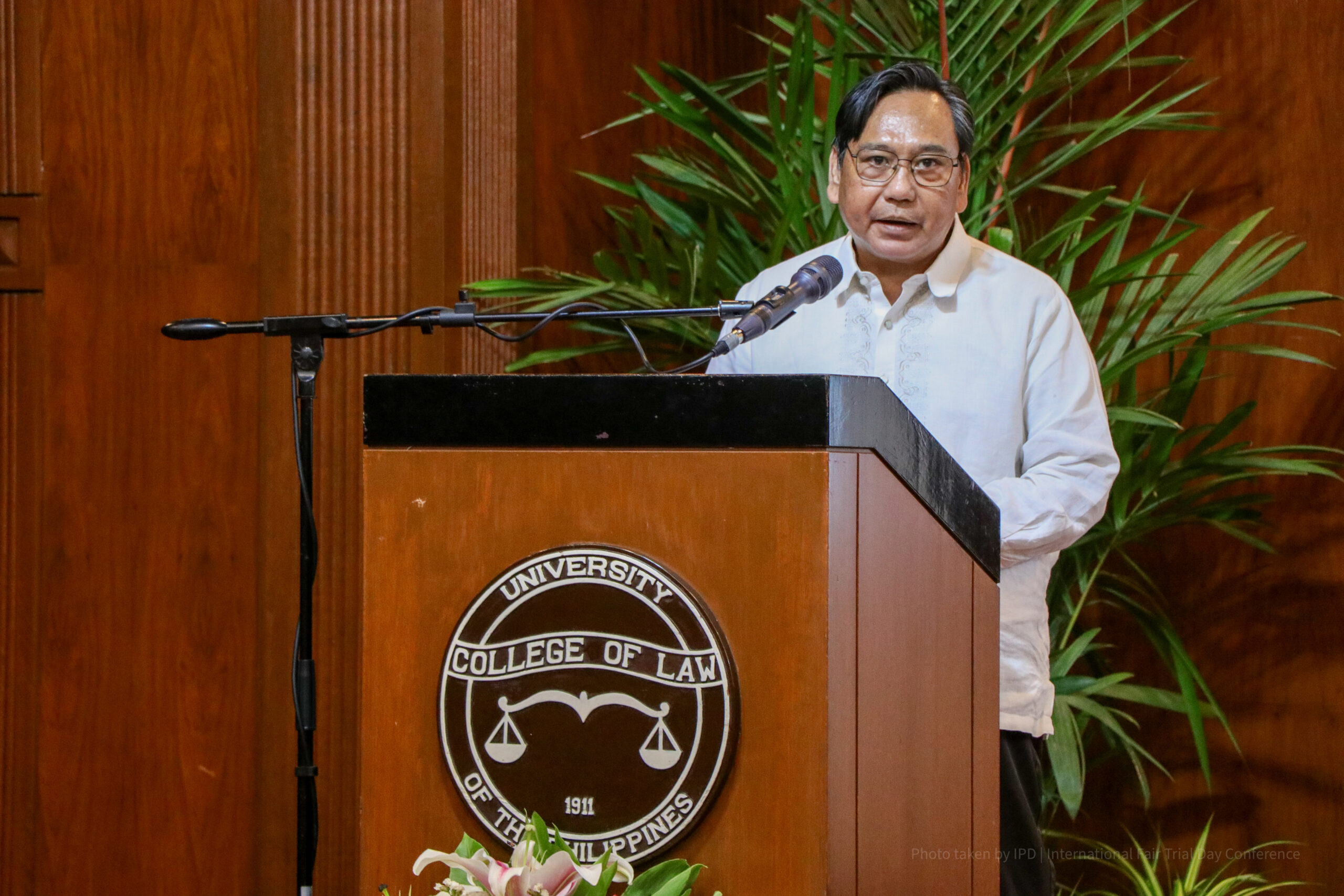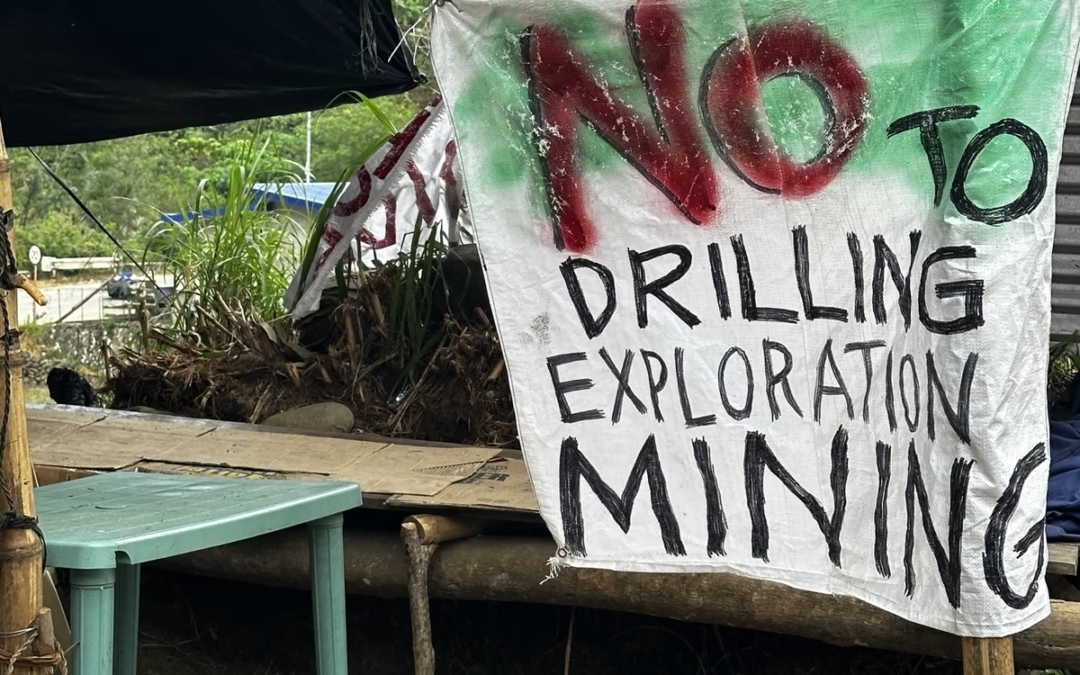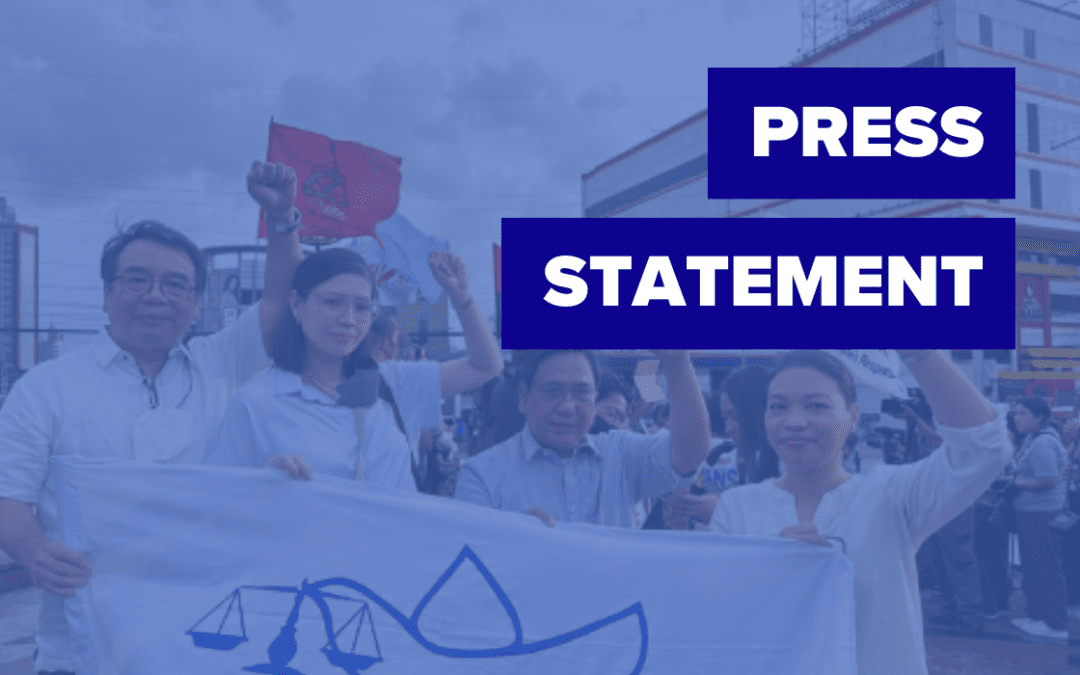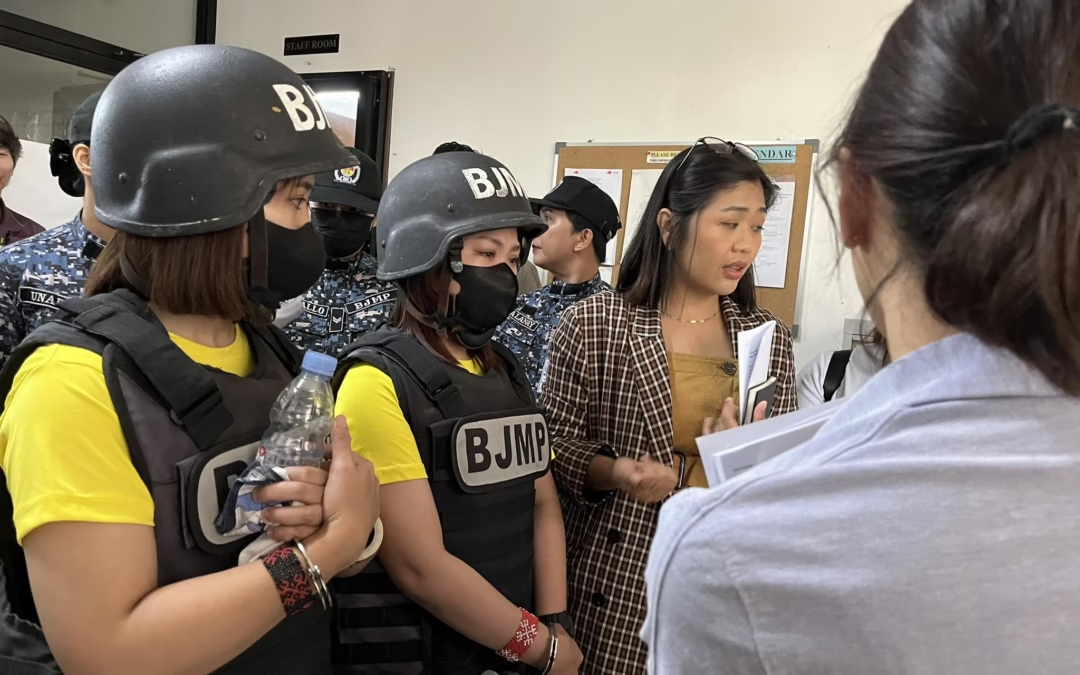International Fair Trial Day Manila Conference
Session 1 on Independence of Lawyers and Judges*
Judicial independence is a relevant issue in the Philippine context, especially in light of the weaponization of the law against those who exercise their right to dissent. Judicial independence, or the lack of it, is crucial to the right to a fair trial.
The present administration has continued the practice of filing trumped-up charges against advocates and personalities associated with political and sectoral organizations labeled as “communist front organizations.” This practice became more prevalent after the creation of the National Task Force to End Local Communist Armed Conflict (NTF-ELCAC), which has been primarily responsible for initiating legal offensives against such organizations and their leaders.
The weaponization of the law is systematic and state-sponsored, with the entire structure of government working in unison to make this effective.
Unfortunately, based on our experiences, agencies that are supposed to dispense justice are themselves part of the scheme to perpetuate legal harassment. The Philippine judicial process involves many actors in its different stages:
Investigation Stage: Facts are determined, and evidence is gathered and preserved. This is performed by the police and other investigative agencies of the government, such as the National Bureau of Investigation.
Preliminary Investigation Stage: The facts established and the evidence gathered during the investigation are presented for the determination of probable cause to indict the perpetrators.
Prosecution Stage: The alleged perpetrators are prosecuted.
For trumped-up or contrived charges to prosper, the main actors in all these stages must connive for a false charge to survive scrutiny.
One primary observation regarding the investigative competency of our law enforcement agencies is their apparent incompetence, negligence, and sluggishness when investigating extrajudicial killings involving activists, advocates, and dissenters. In many cases, there is a lack of effort to identify, investigate, and prosecute the perpetrators. Take the case of a couple, two of the nine activists killed during the Bloody Sunday Massacre in March 2021. Their child saw them being dragged out of their house, shot, and killed by soldiers. However, the panel of prosecutors that investigated the case was not convinced by the evidence and, despite an eyewitness account, dismissed the case for insufficiency of evidence.
We note the increasing number of cases involving terrorism and financing terrorism against activists and advocates. These cases are based on the flimsiest grounds. At the center of these cases are the alleged “rebel returnees,” many of whom were placed under the government’s social integration program and are under military custody. They provide the alleged evidence against targeted activists and advocates. These rebel returnees seem to have superhuman attributes as they can see in the dark, identify the persons who allegedly ambushed a military unit, and recite the true names and aliases of tens and sometimes even hundreds of implicated individuals.
At a glance, one can easily decipher the incredulity of the accusation and the evidence presented. Yet, this evidence, surprisingly, survives scrutiny by the prosecution service, which often recommends the filing of the indictment against the respondents.
These contrived charges, based on such evidence, cannot possibly pass through and survive preliminary investigation without the cooperation of law enforcement agencies, including the military, and the prosecution service.
Even the courts are not insulated from this scheme. Knowingly or unknowingly, they also become instruments for the perpetuation of legal harassment. Under our rules of procedures, even if a case passes through preliminary investigation, there are available remedies when the case reaches the court. These remedies are supposed to ensure that only the guilty are prosecuted.
However, these remedies are defanged and useless in cases involving activists and advocates. The courts usually, except in a few instances, rule that the accused is merely delaying the proceedings and that the grounds raised are mere matters of defense.
In other words, in many of our cases involving activists and advocates, there were opportunities at the initial stages for the courts to dismiss them through the above-cited remedies. But they do not, instead allowing the cases to go through a full-blown trial, seemingly unmindful of the Supreme Court’s admonition in Salonga vs. Cruz-Pano, which ruled:
“It is, therefore, imperative upon the fiscal or the judge as the case may be, to relieve the accused from the pain of going through a trial once it is ascertained that the evidence is insufficient to sustain a prima facie case or that no probable cause exists to form a sufficient belief as to the guilt of the accused.”
In light of the passage and implementation of the anti-terror law and the anti-terrorist financing laws, this kind of setup is troubling for our clients, who are advocates and activists, the same segments targeted for terrorism or financing terrorism prosecution.
The state is using the same modus operandi, relying on testimonies of alleged rebel returnees—same old dog but with a different collar. What makes it more difficult is that terrorism and financing terrorism cases are heard and tried by designated anti-terror courts. Designating specific courts as anti-terror courts makes them vulnerable to pressures from state forces because it is clear where these cases will be filed and tried.
How can we forget the vilification of the judge who quashed the search warrants issued against two activists, or the judge who dismissed the proscription case against the CPP and NPA, or the presiding judge who issued defective search warrants after meeting with a high-ranking police officer?
To summarize, trumped-up charges cannot be commenced if the filing of the complaint is not initiated by the police or the military using manufactured evidence and perjured witnesses. It cannot be filed in court if it is not approved by the investigating prosecutors. The case can only pass through pre-arraignment and pre-trial remedies if the court allows it. Under these circumstances, we cannot possibly obtain justice from our courts. The blindfolded Lady Justice, which symbolizes our justice system, aptly describes our predicament and the inadequacy of the legal and judicial system in our country. Because of her blindfold, Lady Justice is unable to see the exploitation, repression, and injustices around her. #
*Delivered by NUPL President Atty. Ephraim B. Cortez



